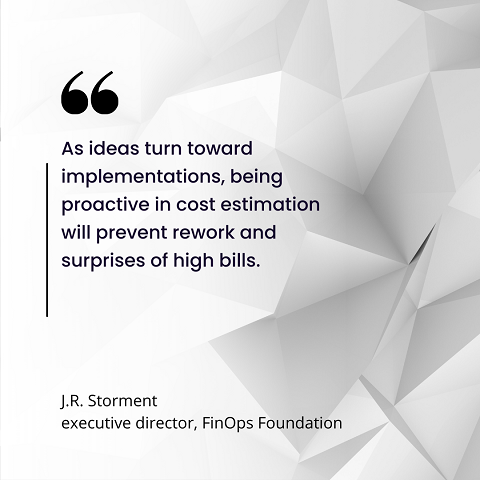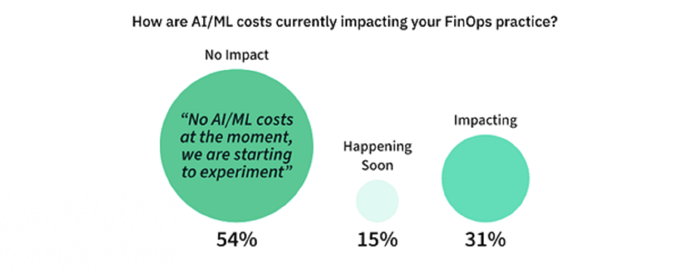FinOps Teams Prioritize Waste Reduction Amid Economic Uncertainty
It's no surprise that organizations are looking to cut cloud costs where they can. However, they don't quite have all the forecasting tools to get it done, a FinOps report finds.

The FinOps Foundation has released its 2024 State of FinOps report, detailing key trends, priorities, and practices based on a survey of over 1,200 cloud cost management practitioners. The report provides valuable insights into how FinOps teams are evolving to meet new challenges.
The FinOps Foundation got its start in 2019 and became part of the Linux Foundation in 2020. The guiding mission for the FinOps Foundation is to help organizations bring the right discipline and processes to cloud operations (CloudOps) cost optimization. The annual State of FinOps report provides key benchmarks to guide FinOps teams in maturing their cloud cost optimization practices.
Reducing waste has taken over as the No. 1 priority of FinOps professionals, with 72% of respondents saying it is a key priority. This reflects the increased pressure to eliminate unnecessary spending as markets contracted in 2023. Cutting unused cloud resources displaced the previous leading priority — empowering engineers — showing the critical emphasis businesses now place on eliminating waste.
The key findings from the report include the following:
Reducing waste is the top priority, with 72% of respondents considering it a key priority.
61% of respondents say they lack mature forecasting capabilities.
Engineers benefit most from FinOps training, with 76% reporting an increased investment to train engineers in FinOps.
AI/ML costs are growing, impacting 45% of large spenders.
"[It's] not really a surprise given the economic conditions of 2023, but having empowering engineers drop from the top spot in key priorities for the first time was an interesting data point," J.R. Storment, executive director of the FinOps Foundation, told ITPro Today.
Engineers Benefit Most From FinOps Training
Survey results showed engineers are getting the most value from FinOps training as well as self-service reporting to enable real-time spending decisions. This suggests the focus on educating and empowering engineers is paying dividends in greater efficiency. However, sustainability and procurement teams lag on benefiting from reports, signaling an opportunity for more tailored FinOps education.

Less than 20% of FinOps teams currently collaborate with sustainability teams, but 50% expect it to become part of their role in the future. Tighter integration of carbon emissions data into spending decisions is anticipated as sustainability reporting matures. Regions with reporting mandates like EMEA already show closer collaboration in 38% of teams surveyed.
Why Many Organizations Are Failing at Forecasting Costs
A primary goal of FinOps is controlling and optimizing cloud costs. To do that effectively requires the ability to actually forecast costs, which isn't something every organization excels at.
The report found that 61% of organizations lack mature forecasting capabilities, but it's not all bad news, according to Storment.
"There is increased organizational attention on forecasting, with 57% of respondents stating increased attention for granularity, communication, and accuracy within forecasting," he said.
What's also improving are the desired features that organizations are now building or acquiring. One such desired feature, according to Storment, is granularity, which is the ability to provide forecasts at various detailed levels such as account, team, and type of resources. He noted that 60% of respondents have desires or plans to implement granularity, while 34% already have implemented the feature as part of forecasting.
How AI Should Fit Into FinOps Cloud Cost Management
It's still early for artificial intelligence (AI) usage, but it is an area that is growing fast as a line item for cloud costs.

While only 31% of respondents indicated AI/ML costs currently impact their FinOps practices, that jumps to 45% for large spenders of over $100 million annually. The data mirrors the rise of cloud itself, with unbounded early experimentation giving way to management as material costs emerge.
"AI will continue to be an area of interest to organizations as they seek to take benefits from its potential," Storment said.
He recommends that organizations aim to improve their cost tracking and allocation capabilities in order to develop awareness of the costs associated with AI as they continue to rise.
"As ideas turn toward implementations, being proactive in cost estimation will prevent rework and surprises of high bills," Storment said.
About the Author(s)
You May Also Like




